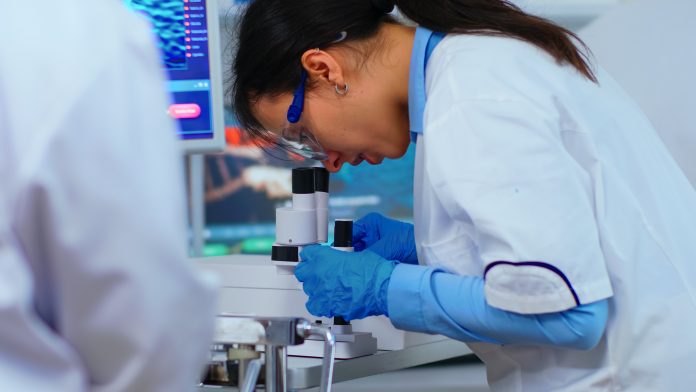A Phase 1 clinical trial of a universal flu vaccine has started inoculating healthy adult volunteers at the National Institutes of Health Clinical Center in Maryland
The placebo-controlled trial of a novel influenza vaccine will test the safety of a possible vaccine called BPL-1357. The trial will also monitor its ability to prompt immune responses.
The universal flu vaccine candidate was developed by researchers at the National Institute of Allergy and Infectious Diseases (NIAID).
The trial will be led by NIAID investigator Matthew J. Memoli, M.D. who will oversee up to 100 people aged 18 to 55 years in the single-site trial.
‘An invaluable public health tool’
NIAID Director Anthony S. Fauci, M.D. comments: “Influenza vaccines that can provide long-lasting protection against a wide range of seasonal influenza viruses, as well as those with pandemic potential, would be invaluable public health tools.
“The scientific community is making progress on this pressing global health priority. The BPL-1357 candidate influenza vaccine being tested in this clinical trial performed very well in pre-clinical studies and we look forward to learning how it performs in people.”
BPL-1357 is a whole-virus vaccine consisting of four strains of non-infectious, chemically inactivated, low-pathogenicity avian flu virus.
The universal flu vaccine has already been tested on animals with results indicating that all mice receiving two doses of BPL-1357 vaccine delivered either intramuscularly or intranasally survived later exposure to lethal doses of each of six different influenza virus strains, including subtypes that were not included in the vaccine. Similar results were obtained when the vaccine was tested on ferrets.
How will phase 1 of the trial be conducted?
Volunteers will be randomised in a 1:1:1 ratio into three groups. They will then receive two doses of a vaccine or placebo spaced apart by 28 days.
Group A participants receive BPL-1357 intramuscularly along with an intranasal saline placebo; Group B will receive doses of the candidate vaccine intranasally along with an intramuscular placebo; volunteers in Group C receive intramuscularly and intranasally delivered placebo at both visits to the clinic. Neither the study clinicians nor the volunteers will know the group assignments.
8 weeks before enrolment, volunteers must not have received any type of flu vaccination. They are also not allowed to receive seasonal flu vaccination for approximately two months after the second vaccine (or placebo) dose.
The study will take seven months for each participant. Volunteers must also return to the clinic seven times to provide blood and nasal mucosal samples that will be used by the investigators to detect and characterise immune responses.
‘We are attempting to induce a comprehensive immune response that closely mimics immunity gained following a natural influenza infection’
Dr Memoli adds: “With the BPL-1357 vaccine, especially when given intranasally, we are attempting to induce a comprehensive immune response that closely mimics immunity gained following a natural influenza infection.
“This is very different from nearly all other vaccines for influenza or other respiratory viruses, which focus on inducing immunity to a single viral antigen and often do not induce mucosal immunity.
“Our study will examine the safety of BPL-1357 and also will allow us to assess the importance of mucosal immunity against flu and whether a strategy of inducing both the cellular and antibody arms of the immune system can provide broader protection against the ever-changing influenza virus.”











